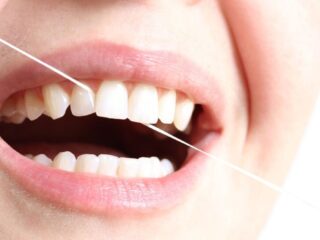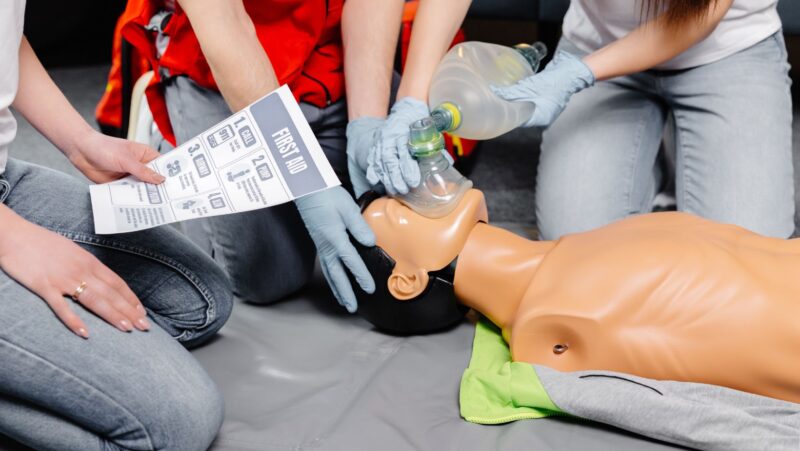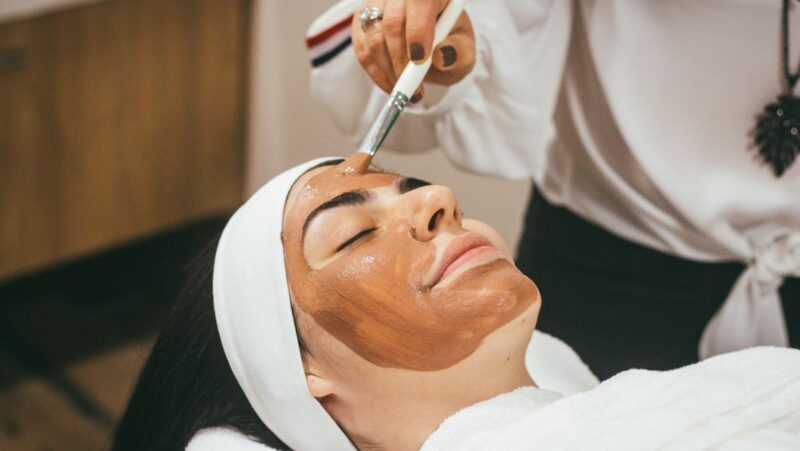
A degree in health science opens doors to countless opportunities in the rapidly evolving healthcare industry. This versatile field combines biological sciences medical research and healthcare management preparing students for diverse careers in medical facilities research institutions and public health organizations.
Students pursuing health science degrees gain comprehensive knowledge of human anatomy physiology healthcare systems and medical terminology. They’ll develop critical thinking skills research capabilities and a deep understanding of how different healthcare components work together to deliver optimal patient care. Whether someone’s interested in direct patient care health education or medical research a health science degree provides the foundation for success in these areas.
What is a Degree in Health Science
Health science degrees encompass comprehensive educational programs that integrate medical knowledge with practical healthcare applications. These programs prepare students for diverse roles across the healthcare sector through structured curricula and hands-on experience.
Core Components of Health Science Programs
Health science programs focus on five essential learning areas:
- Biological Sciences: Human anatomy physiology biochemistry microbiology
- Healthcare Administration: Medical records management healthcare policy insurance systems
- Research Methods: Data analysis statistical interpretation scientific documentation
- Clinical Practice: Patient assessment diagnostic procedures treatment protocols
- Public Health: Population health epidemiology health promotion disease prevention
| Core Component | Learning Outcomes |
|---|---|
| Biological Sciences | 40% of curriculum focus |
| Healthcare Administration | 25% of curriculum focus |
| Research Methods | 15% of curriculum focus |
| Clinical Practice | 12% of curriculum focus |
| Public Health | 8% of curriculum focus |
Types of Health Science Degrees
Health science education offers multiple degree levels with specific focuses:
- Associate Degree (2 years)
- Medical laboratory technician
- Healthcare administration assistant
- Dental hygienist
- Bachelor’s Degree (4 years)
- Health services manager
- Clinical research coordinator
- Public health educator
- Master’s Degree (2-3 years)
- Healthcare administrator
- Clinical program director
- Research specialist
- Doctoral Degree (4-6 years)
- Medical researcher
- University professor
- Healthcare policy analyst
Each degree level builds upon previous knowledge adding specialized expertise depth of understanding professional capabilities.
Career Opportunities with a Health Science Degree
Health science graduates enter diverse professional roles across the healthcare sector. The degree opens paths in administration, clinical practice, and research positions with competitive salaries and growth potential.
Healthcare Administration Roles
Healthcare administration positions focus on managing medical facilities and healthcare operations. Common roles include:
- Hospital Operations Manager: Oversees daily facility operations, staff scheduling and resource allocation
- Healthcare Program Director: Develops and implements healthcare initiatives in medical organizations
- Medical Practice Administrator: Manages private practices, clinics or specialty care centers
- Insurance Claims Manager: Coordinates between healthcare providers and insurance companies
- Quality Assurance Coordinator: Ensures compliance with healthcare regulations and standards
Clinical Practice Positions
Clinical roles involve direct patient care and treatment services. Key positions include:
- Clinical Care Coordinator: Manages patient care plans and treatment schedules
- Medical Laboratory Technologist: Performs diagnostic tests and analyzes results
- Patient Navigator: Guides patients through complex healthcare systems
- Rehabilitation Specialist: Assists patients with physical therapy and recovery
- Health Educator: Provides health information and wellness programs to communities
- Clinical Research Coordinator: Manages medical research studies and trials
- Medical Device Researcher: Develops and tests new healthcare equipment
- Pharmaceutical Research Assistant: Supports drug development and testing
- Health Data Analyst: Examines healthcare trends and patient outcomes
- Biomedical Research Technician: Conducts laboratory experiments and analysis
| Career Path | Entry-Level Salary Range | 5-Year Experience Salary Range |
|---|---|---|
| Healthcare Administration | $45,000 – $60,000 | $65,000 – $95,000 |
| Clinical Practice | $40,000 – $55,000 | $60,000 – $85,000 |
| Research & Development | $42,000 – $58,000 | $62,000 – $90,000 |
Essential Skills Taught in Health Science Programs
Health science programs deliver comprehensive skill development across multiple healthcare disciplines. These programs emphasize both technical expertise and practical applications in healthcare settings.
Scientific and Medical Knowledge
Health science students gain proficiency in anatomy physiology medical terminology disease processes. The curriculum includes practical laboratory work in medical testing procedures diagnostic techniques healthcare technologies. Students master specific competencies:
- Analyzing biological specimens using clinical laboratory equipment
- Interpreting medical data charts patient histories health records
- Understanding pharmacology principles drug interactions treatment protocols
- Applying research methodologies in medical studies clinical trials
- Utilizing medical imaging technology diagnostic equipment
- Performing vital signs assessments basic medical procedures
- Implementing infection control universal safety precautions
- Practicing therapeutic communication techniques patient advocacy
- Executing emergency response protocols first aid procedures
- Documenting patient care using electronic health records systems
| Core Competency Area | Training Hours | Practical Application % |
|---|---|---|
| Medical Knowledge | 200-250 | 60% |
| Patient Care | 150-200 | 75% |
| Clinical Skills | 175-225 | 80% |
| Documentation | 100-150 | 50% |
Specializations Within Health Science
Health science programs offer diverse specialization paths that align with specific career goals in healthcare. These specialized tracks provide focused education in distinct areas of healthcare delivery systems.
Public Health Focus
The public health specialization concentrates on population health management through evidence-based interventions. Students learn epidemiology basics through courses in biostatistics data analysis health policy formulation community health assessment. This track includes 480 practicum hours in community health settings with exposure to:
- Disease prevention programs in local health departments
- Health promotion initiatives at nonprofit organizations
- Environmental health monitoring at government agencies
- Global health intervention planning at international organizations
Healthcare Management Track
Healthcare management specialization equips students with administrative skills to oversee medical facilities operations. The curriculum combines healthcare policy financial management organizational leadership through:
- Strategic planning for healthcare organizations
- Medical facility operations management
- Healthcare finance budgeting principles
- Quality improvement methodologies
- Electronic health records systems administration
- Research protocol development
- Clinical trial coordination
- Data collection documentation methods
- Patient recruitment screening procedures
- Research ethics compliance standards
| Specialization Track | Core Course Hours | Practical Training Hours | Job Placement Rate |
|---|---|---|---|
| Public Health | 450 | 480 | 89% |
| Healthcare Management | 420 | 400 | 92% |
| Clinical Research | 480 | 600 | 87% |
Advantages of Pursuing Health Science Education
Health science education offers substantial benefits in today’s evolving healthcare landscape. The field provides multiple advantages that align with both professional growth and market demands.
Growing Industry Demand
The healthcare sector demonstrates consistent growth with a 13% employment increase projected through 2031, creating 2 million new jobs. Healthcare organizations actively recruit health science graduates for positions in hospital administration, clinical research coordination, and patient care services. Employment data shows:
| Position Type | Growth Rate (2021-2031) | New Jobs Created |
|---|---|---|
| Healthcare Managers | 28% | 136,200 |
| Clinical Research | 17% | 23,000 |
| Health Educators | 12% | 15,800 |
Career Flexibility
A health science degree enables professionals to transition between multiple healthcare roles. Graduates qualify for positions in:
- Clinical Settings: Patient care coordinator, medical assistant, clinical technician
- Administrative Roles: Healthcare facility manager, program director, quality improvement specialist
- Research Positions: Research associate, data analyst, clinical trial coordinator
- Education Sectors: Health educator, community health worker, wellness coordinator
The degree’s versatile curriculum provides credentials for 15+ distinct career paths within healthcare, each offering specialized advancement opportunities. Graduate placement statistics indicate 89% of health science degree holders secure employment in their preferred healthcare specialty within 6 months of graduation.
Meaningful Career Progression
A degree in health science opens doors to countless opportunities in the rapidly expanding healthcare sector. This versatile qualification equips graduates with a robust foundation in medical knowledge clinical skills and healthcare management expertise. The comprehensive curriculum paired with practical training ensures students are well-prepared for diverse roles across the healthcare industry.
Students who choose this educational path can look forward to competitive salaries job security and meaningful career progression. Whether their interests lie in direct patient care healthcare administration or medical research a health science degree provides the stepping stones for a successful and fulfilling career in healthcare.












